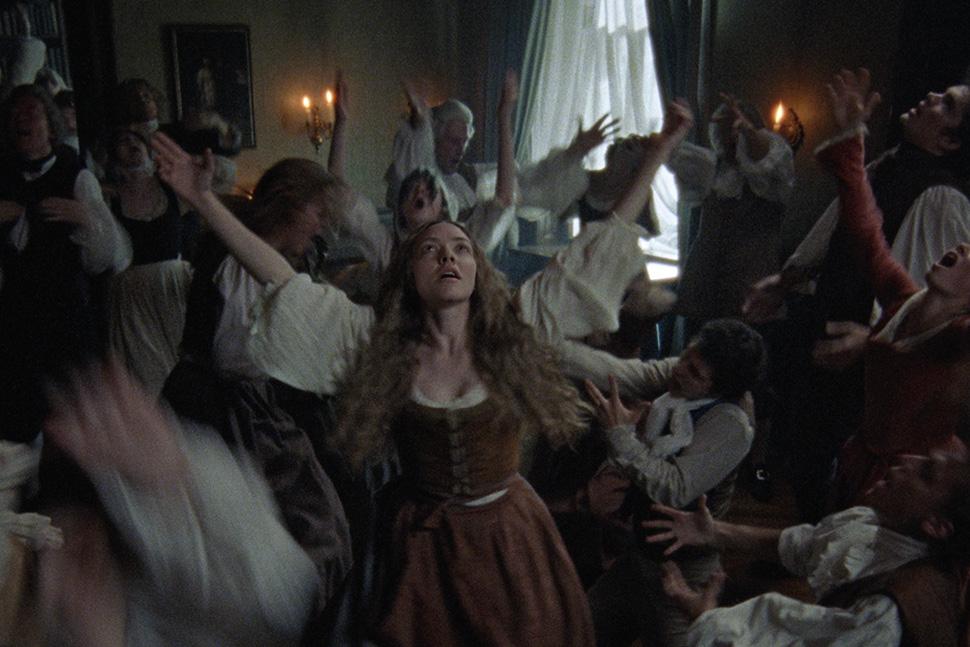The Testament of Ann Lee, the latest feature from Mona Fastvold, launched at the Venice Film Festival this evening, and the notices are rolling in.
The musical film stars Amanda Seyfried as charismatic 18th-century religious leader Ann Lee, who founded the Shaker movement, known for its ecstatic singing and dancing as well as, later, its simple furniture and architecture. The Brutalist filmmaker Brady Corbet co-wrote the film with Fastvold.
The early reaction from critics on the Lido has been mostly positive, with several reviews clocking the film at 3 stars and highlighting its narrative experiments.
Deadline’s Damon Wise described the film as “strange and oddly visceral.”
“Reuniting three of the main factors of the success of The Brutalist — Fastvold plus composer Daniel Blumberg and writer/producer Brady Corbet — The Testimony of Ann Lee plays like a light yin to that film’s dark yang, telling a similar but much warmer story of troubled genius, social torment, and escape,” Wise wrote.
“Though she’s clearly some kind of fruitcake, Ann has optimism, compassion, and life, which Fastvold reveals in a series of mesmerizing musical numbers taken from real Shaker scriptures. It also helps to have Amanda Seyfried in the leading role; showing a whole new side to herself, Seyfried makes for a very credible messiah, and an earth mother with a great natural gift.”
Vogue magazine highlighted what it described as the “many similarities” between The Testament of Ann Lee and The Brutalist.
“Both are far too long – though, Ann Lee is, remarkably, nearly an hour and a half shorter than The Brutalist – and start strong before eventually losing their way in their final act,” the magazine wrote. “But both, with their extraordinary imagery, visceral power and almost reckless ambition also demand to be seen and dissected.”
In Variety, Guy Lodge said the film is respectful and intellectually curious, even if dramatically, it can pall across the course of a languid 136-minute runtime.” However, Lodge said the film is “most stunningly persuasive” when thought of as a “full-blown song-and-dance affair.”
Discussing the film’s aesthetics, The Guardian said it “looks sometimes like a Lars von Trier nightmare of ironised martyrdom, or a Robert Eggers horror film like The Witch, and then sometimes like a weird but spectacular Broadway musical melodrama.”
The newspaper gave the film an overall three stars and praised it’s philosophical ambitions.
“This is a genuinely strange film, elusive in both tone and meaning, one which deploys the obvious effects and rhetorical forms of irony, while at the same time distancing itself from these effects and asking its audience to sympathise and even admire Lee, because she is not supposed to be the villain,” the newspaper wrote.
Little White Lies described the film as “impressive and admirable,” but concludes that it “never quite finds an emotional pull in the way that Fastvold’s previous film, The World to Come, did.”
In a nuanced review, Cineuropa described The Testament of Ann Lee as a “meticulously crafted film” about faith that “never veers into overly praising Mother Ann as a feminist icon ahead of her time, and it doesn’t make a huge deal out of her understanding of gender and racial equality in 18th-century England and colonial America.”
The outlet said the film “keeps just the right amount of distance to grant us the joy and delight of storytelling – thoroughly researched, rendered and delivered with the convictions of the cinema to come.”
Indiewire also highlighted the film’s structure, describing the narrative as “carefully balanced between agony and ecstasy”. The magazine said it is all held together by the “unwavering conviction that Seyfried affords its title character.” The outlet gave the film an A- grade.

